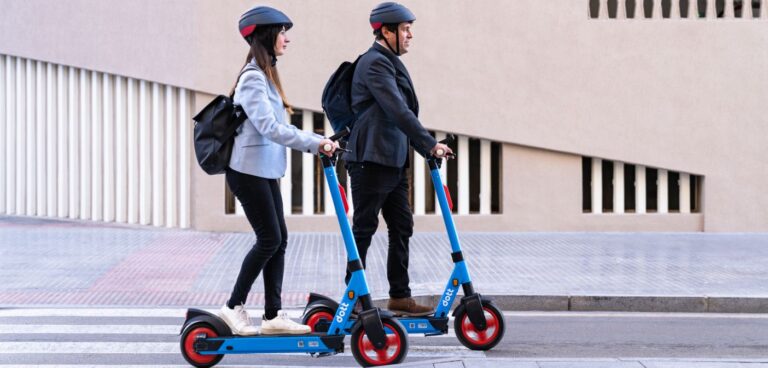The University of Salford’s Acoustics Research Centre has received additional funding to continue its work to develop a universal sound for e-scooters, operating in partnership with micromobility firm Dott and the Royal National Institute of Blind People (RNIB).
The partnership, which was launched in September 2021, has supported research into the first feasibility analysis for using artificial motor sounds on light electric vehicles. The project aims to understand whether artificial motor sounds on e-scooters can improve audible detectability of these vehicles by people with visual impairments, while avoiding additional noise pollution in cities.
In response to a brief by RNIB, funded by Dott, Salford Acoustics have created a series of sounds that underwent extensive testing in its acoustic research facilities. The preliminary research results have indicated that improved noticeability of e-scooters using sound can be achieved without adding to noise pollution.
Antonio J Torija Martinez, principal investigator of the project at The University of Salford, said: “We are delighted with the progress made on this project. Based on initial research, we found that the addition of a well-designed acoustic signal can significantly increase vehicle awareness and ultimately safety.
“The additional funding secured from the Innovation Strategy Fund allows us to carry out further research into the optimisation of acoustic awareness of light electrical vehicles that will be effective for those with visual impairment in complex urban environments. Our research will also be exploring how we integrate human responses to the design of acoustic solutions for e-mobility.”
The ‘Safe and Sound’ project has started consultation with several National Blind Associations across Europe. Phase one of the research will focus on three main areas: the impact of different sounds on users and the public; the feasibility and deployment of the sounds developed to work in tandem with vehicle hardware capability and undertaking trials in different European locations.
Robin Spinks, strategic lead, innovation projects at RNIB, added: “Light electric vehicles pose a significant safety hazard to many people with sight loss. We’re delighted to be collaborating with the Safe and Sound project at Salford as we continue to pioneer solutions to the detectability of quiet vehicles. “
The project is aiming for the roll-out of a future global standard on light electric vehicle technical standards and is continually seeking out collaborations with other partners to complement and enhance its research.





